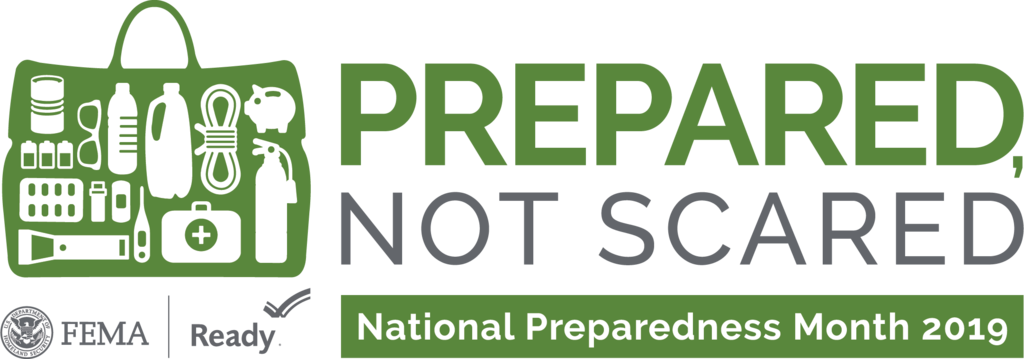 September is National Preparedness Month, a time when we are all encouraged to create or update our disaster plans and make sure we have an emergency kit.
September is National Preparedness Month, a time when we are all encouraged to create or update our disaster plans and make sure we have an emergency kit.
Older adults and people with disabilities often face additional challenges during home emergencies or natural disasters because of health issues, mobility challenges, and use of devices that rely on power. Those individual circumstances make having a plan absolutely critical.
Whether you’re updating your existing plan, or creating one for the first time, ask yourself these important questions:
- What kinds of disasters are most likely to affect your community?
- How might a disaster affect you?
- Is evacuation a likely possibility? Where would you go?
- Could you make it on your own for at least three days? What would you need?
- What problems would you experience if you did not have power for 8 hours? 24 hours? A week?
Every plan will be different, based on individual needs. However, everyone should have an emergency kit that includes food, water, and at least a week of medications. Include this card, completed with your vital medical information, and if you have a communication-related disability, this card can help first-responders assist you in the way that is best for you. Include a flashlight and extra batteries, and first aid supplies. Ready.gov has a thorough emergency kit checklist that will help you think of everything you need.
The Ohio Emergency Management Agency emphasizes that while putting together a kit may seems like a major expense, you don’t have to purchase all suggested items at once. Consider that you may already have some items at home. The agency also suggests adding a couple of items to your shopping list each time you go to the store, and they provide information about how to prepare on a budget, by purchasing many of the suggested kit item for only $1 each. Visit the agency’s website for this information.
Other things to think about when you’re putting together your plan include:
- Which shelters are able to accommodate your individual needs? If possible, be ready to tell first responders, so that you are able to evacuate with your family, service animal, caregiver, personal assistant, and assistive technology devices and supplies.
- Plan ahead for accessible transportation. Work with local services, public transportation or paratransit to identify your options, and include contact information in your emergency kit.
- If you are dependent on dialysis or other life-sustaining medical treatment, note the location and availability of more than one facility.
- If you use in-home medical equipment that requires electricity, talk to your health care provider about how you can prepare for a power outage.
- Don’t forget your pets or service animals. Not all shelters accept pets, so plan for alternatives.
- If you use an augmentative communications device or other assistive technologies, plan for how you will communicate with emergency personnel if your equipment is not working — this might include laminated cards with phrases, pictures or pictograms.
- If you use assistive technology, make sure your plan considers what you will need to take them with you. Have extra batteries available. To simplify replacing equipment that is lost or destroyed, your emergency kit should include model information, where the equipment was purchased, and how it was paid for (Medicaid, Medicare, private insurance, etc.).
Finally, consider the help you may need to execute your emergency plan. Create a support network of friends, family and others who can assist you during an emergency, and share your disaster plans with them.
Sources: Administration for Community Living, Federal Emergency Management Agency, Ohio Emergency Management Agency
